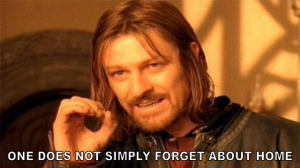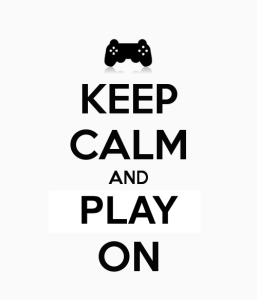Over It! The First Stage is Denial
by Bonzo, HSM guest contributor
After six years, the winding down of Home and its impending shutdown comes as not surprising but nevertheless cheerless news. My own sporadic experience with this virtual platform should have prepared me to be less impacted by the inevitable shutdown, but it is still poignant.
This past year, after almost a year prior of absence from Home, has felt like my senior year in high school. That point where you mentally check out, you know a life stage is coming to an end and what lies ahead is filled with so many promising prospects — but there’s a longing and melancholy for what you’re about to lose.
Much as that final year, there’s also the realization that you aren’t mourning what is but what you remember it to be, and I have been missing what Home was for some time now. Not the buggy, slow loading, frustrating platform that it started out to be, because — let’s face it — that part of it hasn’t changed enough.
What I mean is that original sense of exploring something new, and experiencing this experiment for the first time. Like the energy of the bustling Central Plaza, the gathering with friends and the expectation of any new content being released for our eager virtual wallets to consume.
 There was excitement in a new companion, a new personal space or even moreso a new event or game back when this was such a seldom occurrence that each instance was cause for celebration. In the last few years the updates have come so quickly and in such abundance that they became commonplace.
There was excitement in a new companion, a new personal space or even moreso a new event or game back when this was such a seldom occurrence that each instance was cause for celebration. In the last few years the updates have come so quickly and in such abundance that they became commonplace.
At this point we are looking ahead, and this dated platform we loved so much has been showing its age for sometime. After returning to the platform the friends I made and spent time with had already moved on to PlayStation 4, and we have been engaged in the new generation of hardware and software that we almost forgot about Home. But any Home user will tell you: one does not simply forget about Home.
The heart of Home has been its developers. At Sony itself and third-party alike, and the soul rests prominently in the community which supported it and has continued to shape Home simply by being a part of its user base.
If Home has proven anything, it is that there is a hunger for a virtual world. Home was an innovative idea built on generation-old technology when it first launched. What it promised was a taste of the futuristic sci-fi ideas of alternate realities the likes of decades-old concepts in films like Tron, West World, and The Matrix. Home offered a gaming platform for you to make your own with no demand on how you chose to spend your time, and offering options branching out continuously with every major update.
 The reality is that you either loved it or hated it.
The reality is that you either loved it or hated it.
But as much as some people loathed it and walked away with a bad taste for it, never wanting to even give it a second chance, there was a huge population of users that found a place in Home. Users that formed a community and forged friendships and connections they never would have happened without this platform. As it comes winding down to a close, it’s not, “Did Home succeed as an experiment” you should ask, but did you as an individual have any success in Home as the end user? Did you make friends, did you benefit from using it, and hell, did you enjoy it at all?
For all the grievances, all the problems and bugs…the community thrived. And with the evolution of this digital world so too did the community evolve to accept and even love the idea of an avatar world.
Home never branched off from Beta status, and we should remember “beta” means a testing stage. And we were all beta testers. This was never intended to be an indefinite or permanently available experience. We all knew it would someday come to an end even if we disagreed with the clamoring voices of the more cynical critics calling for its shutdown a long time ago. A six-year run is a long, prosperous life for any software to claim. Think about this: are you running a six-year-old operating system on your computer? Are you using a six-year-old phone? When technology changes so much that fact that Home ran this long — and not only ran, but thrived — is a testament to its success.
The purpose of a ny experiment is to gather data, and I hope the years of Home and its user base will have taught developers what to realistically expect from the end user. And, in turn, I hope the end user has learned what to realistically expect from a developer. With new technologies like Project Morpheus and the powerful game engines being developed, as we speak on more and more powerful processors, the reality of a virtual reality we have been exposed to by science fiction may soon be a possibility.
ny experiment is to gather data, and I hope the years of Home and its user base will have taught developers what to realistically expect from the end user. And, in turn, I hope the end user has learned what to realistically expect from a developer. With new technologies like Project Morpheus and the powerful game engines being developed, as we speak on more and more powerful processors, the reality of a virtual reality we have been exposed to by science fiction may soon be a possibility.
I’d be lying if I simply dismissed the end of Home with, “I’m over it.”
I’m not. I loved Home, and still do — even if the experience isn’t quite the same.
I will miss what it was and will miss the option of logging on.
You can argue over whether it was a commercial success, but you can’t argue against the social experiment being a success. I think the community Home leaves behind, which branched off fan sites like HSM and AlphaZone4, the forums and clubs, is a testimony to that social experiment succeeding in bringing gamers together and providing a space to interact and do what we were supposed to do: to play on and game together.
Share
| Tweet |



 Twitter
Twitter